Take it from a Property Brother: there is one sustainable smart home technology that might save your bacon
Jonathan Scott explains why sustainability and smart go perfectly together
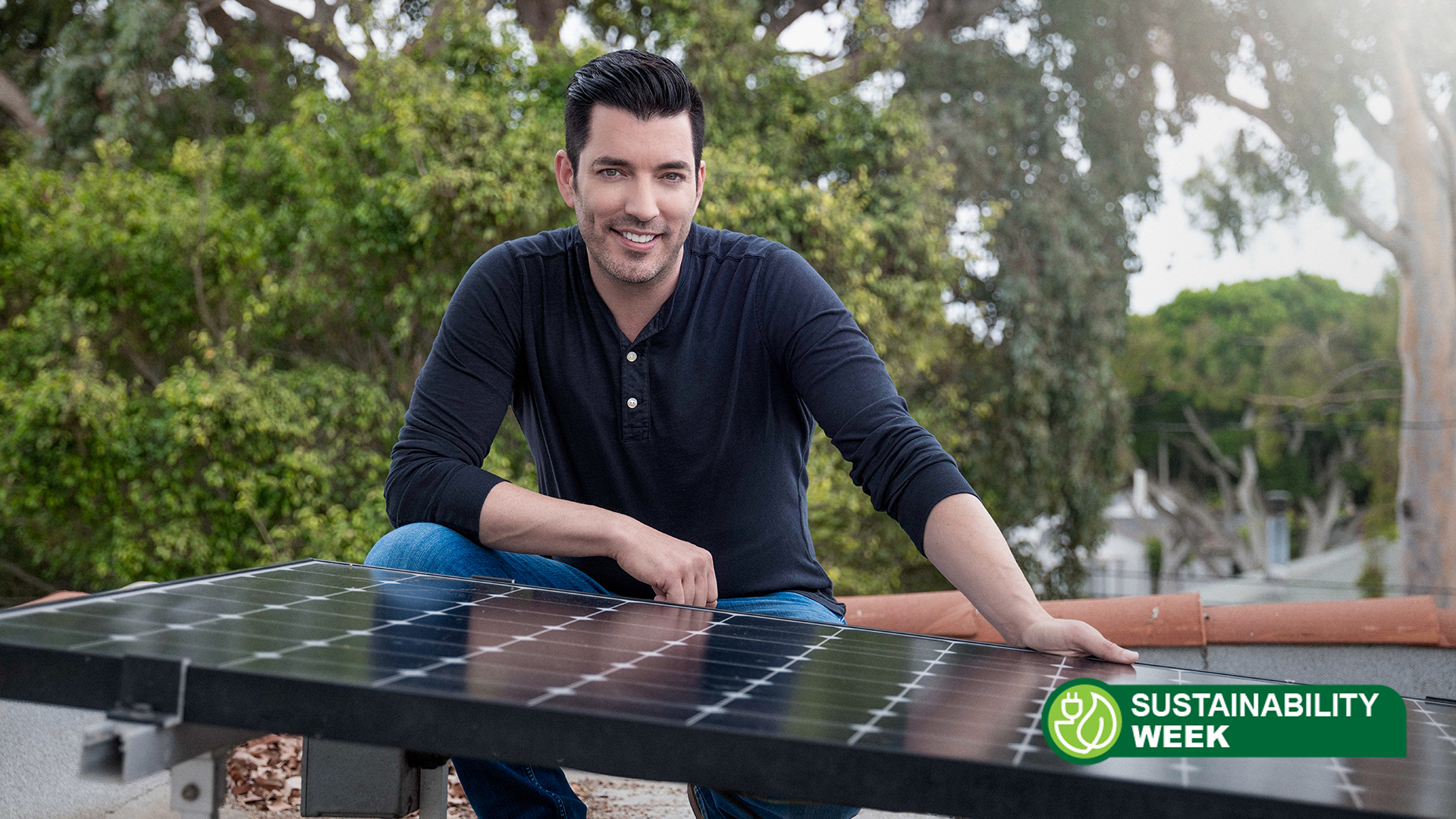
Jonathan Scott, the handy half of The Property Brothers, is not just a friendly face on untold HGTV shows about renovating, building, and improving homes; he’s a hands-on sort of guy with an eye for technology and, especially, the intersection of smart home tech and sustainability.
I’ve known the Scott brothers for well over a decade, and I've always been impressed with Jonathan’s worldview. A licensed contractor, he sees a home as more than just a dwelling; it’s an ecosystem, and in his renovations and builds he likes to think from the ground up, and about where and when the best opportunity to include sustainable smarts present themselves.
A few years back we talked about his interest in promoting access to solar technology for homes, and given the ongoing changes in both technology and our climate, I thought it was high time to check back in.
Despite his busy schedule, which includes managing a media empire of TV shows, video content, a magazine, books, making guest appearances and enjoying family life, Scott agreed to speak with me about the importance of planning when it comes to finding the right mix of smart-home gear and eco-friendly (and sometimes disaster-avoiding) technology.
After catching up a bit, we dove into the core subject and talked about intelligent home solutions, big and small, and how they impact cost, energy, sustainability, and more. Our conversation has been edited for space and clarity.
This article is part of a series of sustainability-themed articles we're running to observe Earth Day 2025 and promote more sustainable practices. Check out all of our Sustainability Week 2025 content.
TechRadar: You've helped in building and renovating hundreds of homes over the years, and I'm assuming – and you can tell me if I'm wrong – that some smart home technology is factored in. And I'm kind of curious about that, and how maybe it changes a project as you're going into it.
Jonathan Scott: It all depends. A lot of people, when they think about smart technology, they're thinking, 'Surround sound or cameras so I can creep on my friends and family and make sure they're not sneaking midnight snacks in the middle of the night' or whatever it might be. That's not what I think of when I think of true smart-home technology. I'm thinking of what is going to make your life easier, what is going to make the home safer, what is going to save you money. Those are the things that are all important.
Get daily insight, inspiration and deals in your inbox
Sign up for breaking news, reviews, opinion, top tech deals, and more.
One of the greatest pieces of technology right now is a water-saving piece of technology and catastrophic flood-averting technology. It is an AI-driven leak-detection technology with shut-off. Insurance companies are now starting to require them because they've realized they all but eliminate the possibility of having a catastrophic flood.
In my circumstance, it's not even just about the flooding. It's my kids leaving the taps on and then we get a big water bill because, in the guest house, the tap was running for a week and we didn't know. The technology will tell me within minutes that somebody's left the tap on, even if it's a dribble, it can find leaks in the wall.
That's one of the technologies that I think is incredible… because it's actually going to save you headaches and money at the end of the day.
TechRadar: And you have it on an app, right? You would get the notifications on an app, I'm assuming.
Jonathan Scott: I use Phyn and there's a bunch of different technologies out there. What I have discovered in my research is that Phyn is an ultrasonic technology, and it is hands down the best technology and price point on the market. There are other ones as well that don't use ultrasonic.
They have a little cog wheel inside. That's how they measure the flow and everything. The problem is if you have any hard water or mineralization over time, it gunks that up, and it stops working.
You want to always go with something that's going to last so that you don't have to worry about it. And when there is an emergency, it handles the job. That's why I like that. But it's one of those things where most people don't think about something like that until it's too late. And that's a problem. So, that is a type of smart home technology on the water side that I think is amazing. And you have to have the auto shut-off. There are some devices that just monitor flow, but then in an emergency, that's not going to help you, especially if you're not at home.
I've actually averted several floods, not only in our house but in our parents' house, where something happened and immediately [the technology] caught it, no water damage at all.
Same on the power side. There are tons of technologies where you can read the smart panels, for example, where it communicates with all your appliances and it says 'This appliance is using excess energy,' which usually means that the motor's about to go out on a fridge or something like that.
...when I think of true smart home technology. I'm thinking of what is going to make your life easier, what is going to make the home safer, what is going to save you money. Those are the things that are all important.
Jonathan Scott: You can also, if you went away on vacation and you're like, "Oh my gosh, did I leave the curling iron on?", you can shut off any individual circuit within the house using these power apps as well. You got to be kind of technically inclined, probably, to dig into that.
The real reason I love putting in a smart panel, like a SPAN panel, I think you and I have talked about SPAN before as well. They do smart panels, EV charging, all kinds of stuff. It's actually the future-proofing of the home that I'm excited about, because in the future, if there was a situation where you're out of power, your power's gone out in your neighborhood, you don't have solar storage backup, you could go and charge your EV, come back, plug it into your house and power your house off your EV.
In the future, there will be that two-way flow of technology, but then also the data from everything is really valuable. I think these technologies allow you to really get a big picture of the cost of your home, the power consumption, and where you can improve.
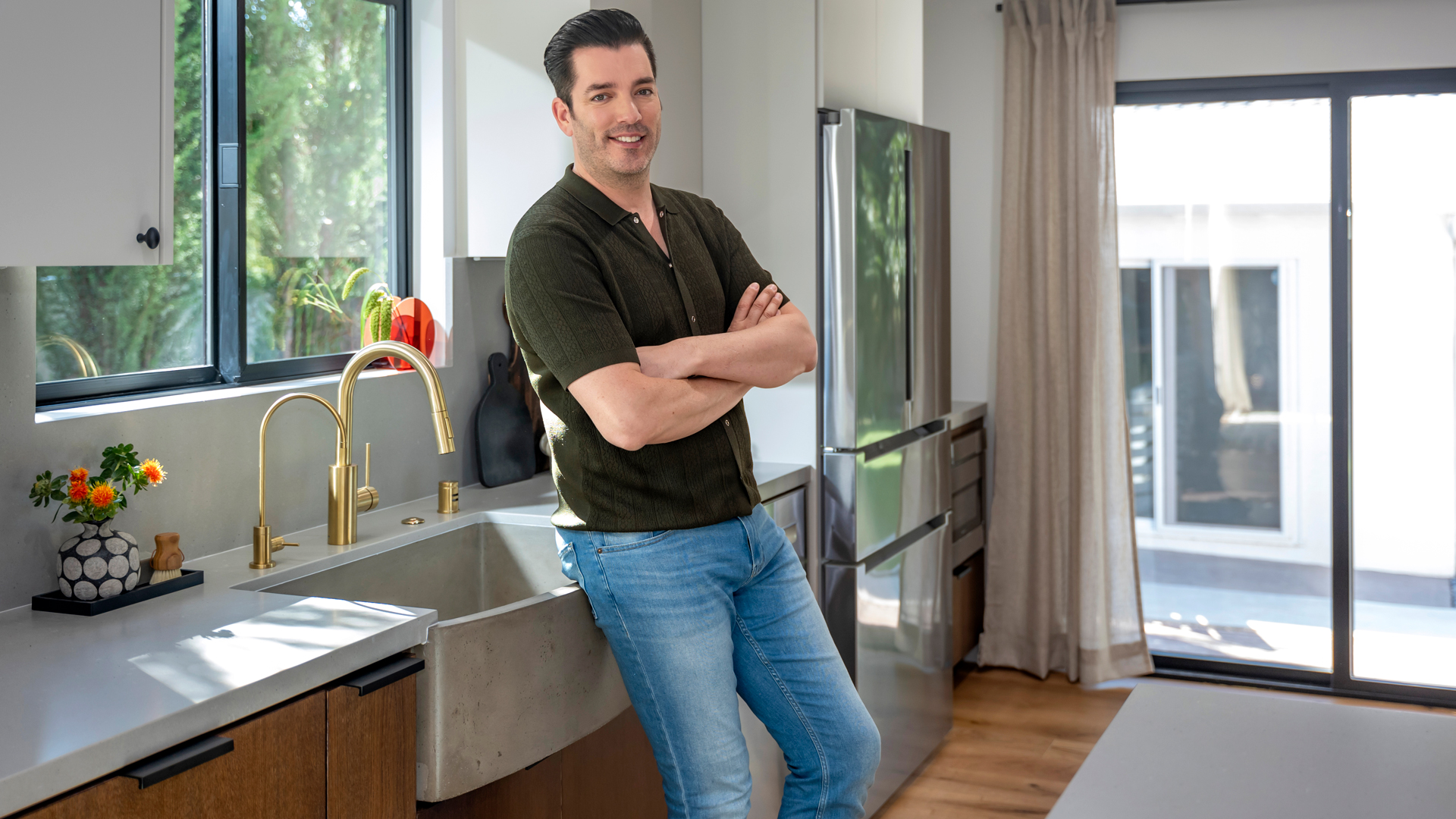
TechRadar: It really does sound like these things are married: smart home technology and sustainability. I guess what I'm curious about is how much planning in advance do you have to do to integrate these things?
When we're dealing with some smart home technology that we review here, it's so piecemeal, and some things don't talk to each other. So, these systems that you're talking about, are they requiring sort of one decision about a platform, or are they kind of platform-agnostic, and you can just pop them in?
Jonathan Scott: No matter what, the easiest time to incorporate any of this is when you're renovating or building or replacing an appliance that has broken down; that's the time when you should consider [for instance] induction for cooking.
Which, by the way, every single chef I know, every cook I know who has said "I don't want induction. I want to cook with real fire and real flame" – every single one of them has changed their mind. Everyone I've known has changed their mind after they got over the initial learning curve of induction, and now they're obsessed with it and they love it. The nice thing is that you don't have to deal with the benzene pumping into your house, the exhaust issues, the gas challenges.
In the future, there will be that two-way flow of technology, but then also the data from everything is really valuable. I think these technologies allow you to really get a big picture of the cost of your home, the power consumption, and where you can improve.
So, the one good thing with these technologies is they're not only a lot more efficient to run because you're not running power and gas, they're just cleaner and safer, and healthier as well.
When you look at that leak-detection device, Phyn, that's something you can put in at any time because it just goes on your main water line coming into the house. It's a $550 device, and it will prevent you from ever having a leak or wasted water.
When it comes to something like a smart panel, you need to be doing a full panel rewire. That can cost several thousand dollars to put in, and the devices as well. You want to do that usually when you're doing a renovation.
Otherwise, if you have a hot water heater that's about to die, if you have a range or a fridge or something like that that's going to die, that's when you want to look at the energy-efficient options or the smart options.
I always say you don't need to break the bank going out of your way to replace an appliance that you just bought five years ago. If it's working perfectly fine, don't worry about it. But as these things come up, that's when you want to make sure you're getting the smartest, latest technology.
Lance Ulanoff: And it seems like the smartest latest technology is also usually the most energy efficient…
So, the one good thing with these technologies is they're not only a lot more efficient to run because you're not running power and gas, they're just cleaner and safer and healthier as well.
Jonathan Scott: Exactly. They're finding new ways all the time. I attend all of the conferences where the latest technologies are coming down. I know I've seen you at CES, but also ARPA-E [Advanced Research Projects Agency–Energy, a US government agency that funds the research and development of advanced energy technologies] has this conference all around power and everything like that. There’s some really cool ideas floating around.
One of the ones that we're seeing is appliances that have battery backup within them. For example, ranges. You're cooking and the power goes out. A lot of people don't realize that if you have a battery backup, that only usually covers about four circuits. The batteries aren't covering your entire house; it's covering four circuits. You have to decide what you want to back up.
There are some appliances now where even if the power goes out, you trickle charge. Normally, a range, if it's electric or induction, it'll have a 220-volt plug, and so that's a lot of power, and it's also more expensive when you're running to it.
They have some new ones now that are only a 110-volt plug. So, just a regular outlet... it trickle-charges over time. Throughout the night, it fills up its battery. Then, when you're actually cooking, it's drawing from the battery and not from your power source. If most people are cooking at dinner time, that's when most utilities charge the most money for their power because that's when everybody's using it.
Lance Ulanoff: That's really smart because in my house right now, we're having some discussions about doing laundry and things, and dishwashing at what time. Because we just got this note, "Don't do it in peak time." There's a problem with that. You're going to, maybe, incur higher costs, and I hadn't actually heard about that [new technology]. Basically, what they sound like is hybrid devices. It's like hybrid cars, right?
All of these technologies, when they first come out, they're a little awkward. It's kind of the awkward teen years of technology. And then once it actually takes root, things will be totally different.
Jonathan Scott: Yeah. And it's early. These technologies will improve. And even on the laundry side, GE has their Profile, which is this all-in-one washer-dryer. And in the past, a lot of these all-in-one units, they never dried very well. This system is incredible. So, first of all, you don't have to vent it. It's a heat pump system. It takes all the moisture out of the clothes. You don't have to have a vent going anywhere. It also only plugs in with 110 volts, so you don't have to run 220 volts.
You can essentially put laundry in a place where you would never have been able to put laundry before because wouldn't have been very easy. And it automatically puts your load over from wash to dry. If you have everything in there and you don't need to go and change it over, you don't have to do anything. I think it does the full [wash and dry] cycle in two hours, or an hour and a half.
All of these technologies, when they first come out, they're a little awkward. It's kind of the awkward teen years of technology. And then once it actually takes root, things will be totally different.
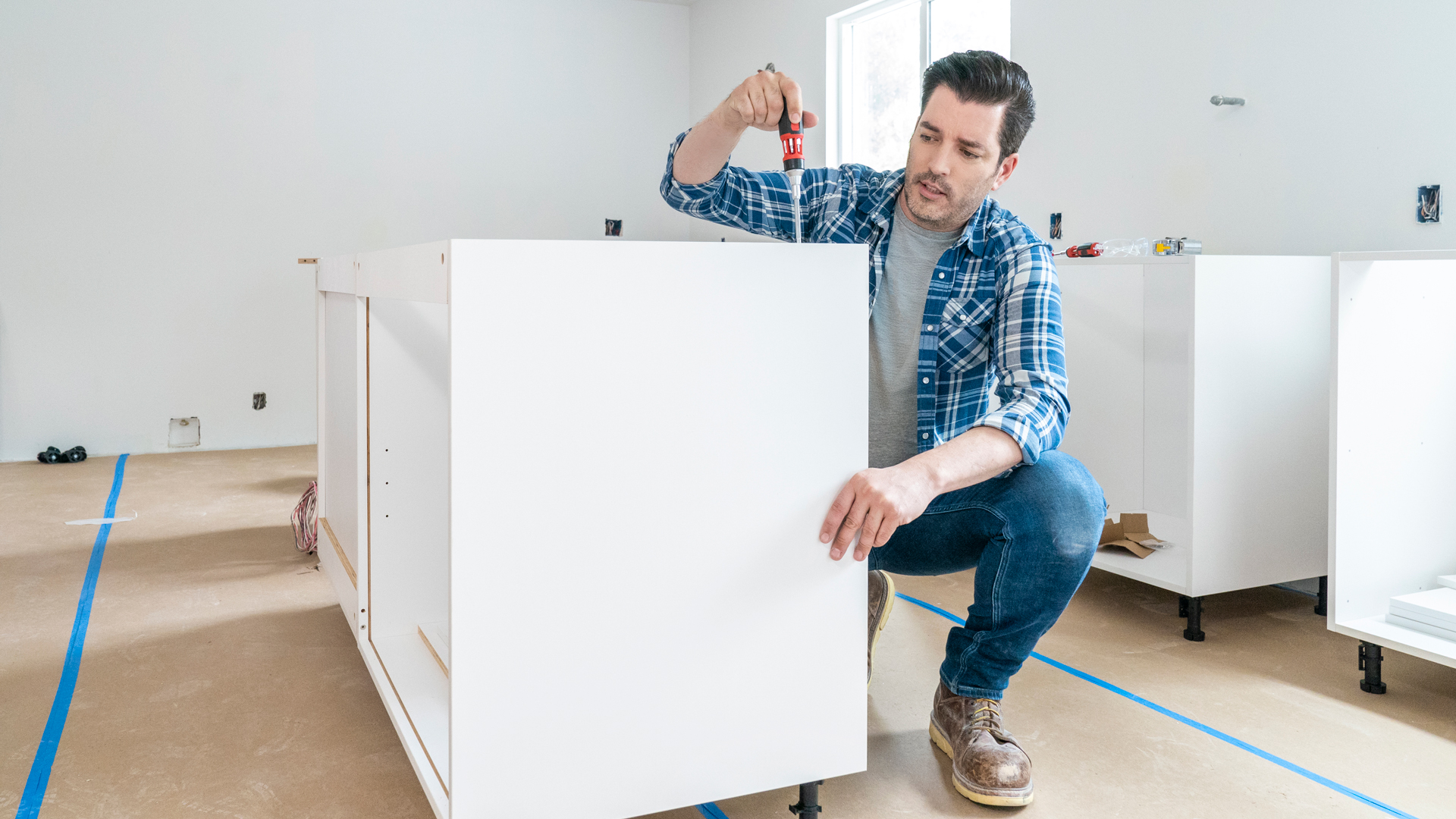
To be totally honest, my opinion of where the future is going to be in not only heating but also powering your home. Right now all of the appliances, so whether it's induction cooking, VRF [variable refrigerant flow, a type of HVAC (heating, ventilation, and air conditioning) system], or heat pump for heating and cooling. You do not need gas for your heating and cooling anymore. Even in cold climates, they've proven that the new heat pump technology is incredibly efficient.
The only place where right now, all-electric technology is not great is in instant hot water heating. If you want tankless hot water heating, if you go all electric, it just draws so much power that it ends up being expensive, and it also means you have to upgrade your service, usually. If you have room for a hot water tank, then a hot water system is the way to go. That's no problem. You just have to size it appropriately.
But give it another five, 10 years. I think the future is going to be every room where you need hot water – kitchen, bathroom – underneath the baseboard, there's that wasted space there. There's going to be a small unit in each of those that heats on demand as you need it. And that way, you're not traveling it all through your house in pipes, letting it heat up and cool down instantly.
TechRadar: And you're wasting the water in that distance. First, you turn it on, all the cold water comes, and then you get the hot water.
I think that the future is going to be every room where you need hot water – kitchen, bathroom – underneath the baseboard, there's that wasted space there. There's going to be a small unit in each of those that heats on demand as you need it
Jonathan Scott: Exactly. The other thing that I think is going to be in the further future, I think we're going to have some source of power that we bring into our home like a battery that powers the entire house for a period of time – a year, who knows what it would be. But at some point, I don't think it's going to be necessarily this interconnected grid system. I think it's going to be an independent power source, and that will transform our ability to build in areas that don't have a grid system set up.
TechRadar: Right. I was going to say, especially in far-flung areas where they don't have all that infrastructure set up already, it makes some sense. So that kind of segues into where we are right now in sort of the solar space.
I get people coming to my door once a month pitching me on it, and we've talked about it. We just haven't, because of the investment, the cost of it, and subsidies coming and going. But you were very invested in that the last time we talked [Jonathan produced a 2019 documentary on the subject]. I'm kind of curious where you see solar energy for homes right now.
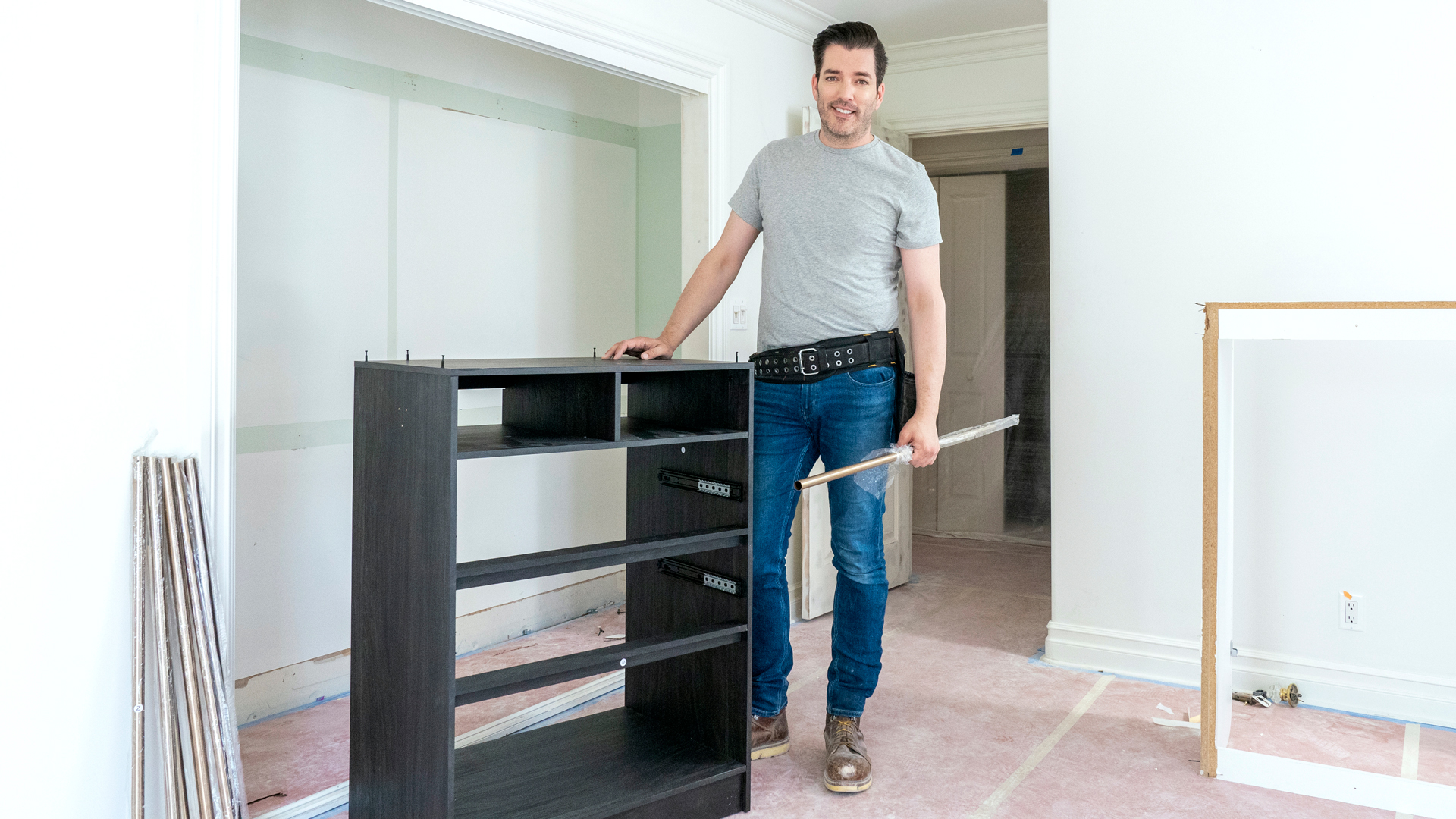
Jonathan Scott: There are a lot of utilities that still fight homeowners being in charge of their own power and producing their own power because that takes money away from them. I've never agreed with that because it's sort of distributing the power so that you don't have the blackouts like Texas had or the surges and whatnot that California suffers from in the summer.
I do think distributed energy is a good idea. Depending on where you live, the payback period is a lot shorter or a lot longer because again, some jurisdictions, strangely enough, it seems to be the sunniest places, tend to have the worst solar policies. Shouldn't be the case; but you're right, it's a cost-prohibitive factor, and then the costs have come down a lot, but that tends to be when people decide, “Do I really want to do this? Do I want to do something that's good for the environment but I don't have to put the cash up, so I'll lease the system.”
There are a lot of utilities that still fight homeowners being in charge of their own power and producing their own power because that takes money away from them.
There are companies that still lease it, like SunRun. They've also switched to a sales platform, too, because most people, I say, if you can afford to buy your system, you're better off doing that because then you reap the benefits once you pay back the system, and that cash goes into your pocket. If you lease it, you're doing something good for the environment. You might see a little bit of a reduction in your monthly costs, but you're not really going to benefit in a big way, you're just doing something good for the environment.
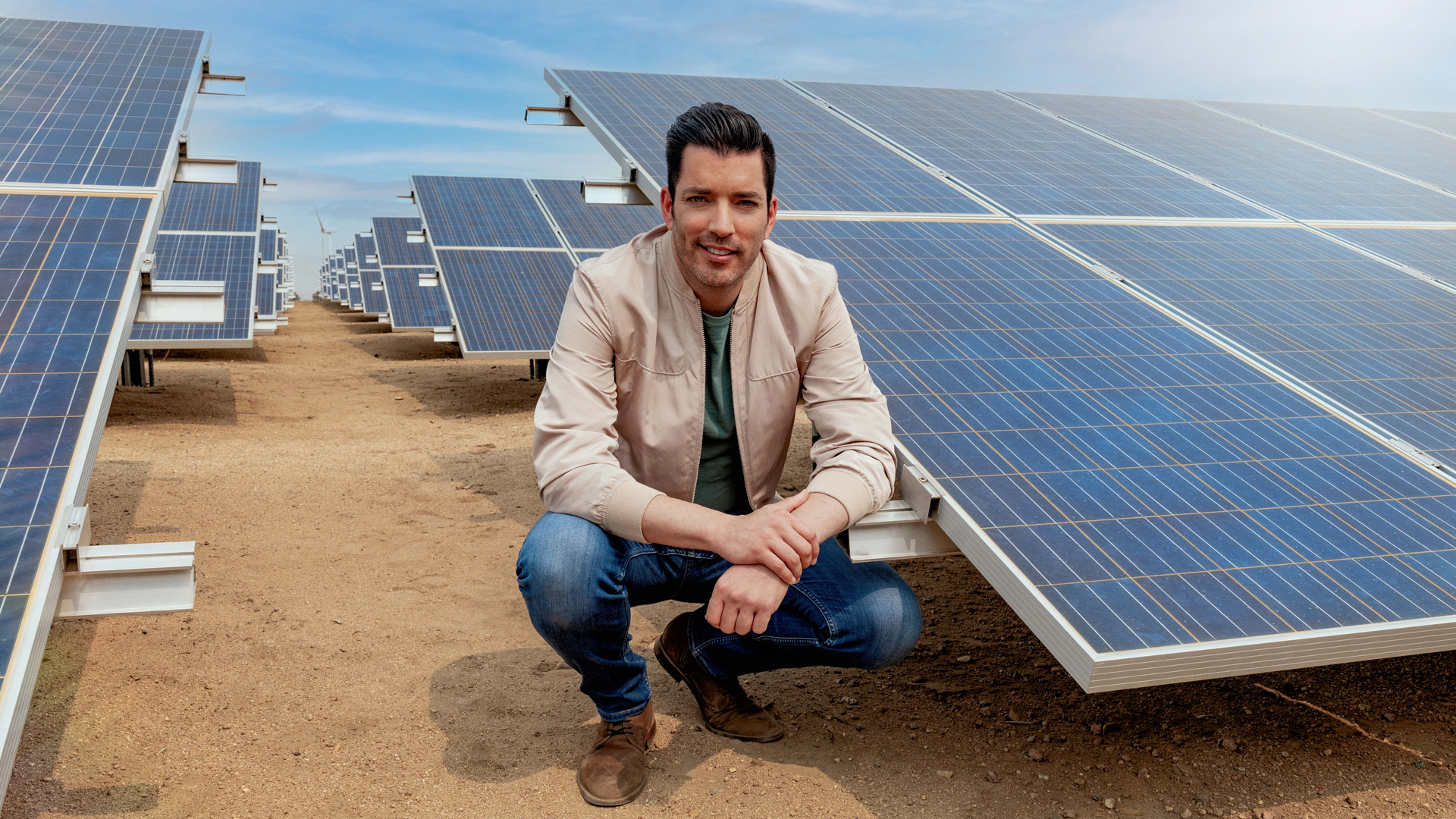
My thought on it is, be real cautious. There are some technologies like the Tesla Solar System, which is what I have on my roof here. They don't produce as much as your newer PV panels, but this is a historic home that we're in, so we wanted to make sure it architecturally looked like slate tile, which it does. We couldn't do PV panels on it.
Know where you are. Know what you're producing. If you have the ability to have the standard PV panels, it's a better way to go. You're going to get more efficiency out of it. But, just make sure as well that you're aware certain times of the year, you don't get the same production. If you have trees blocking the sun from hitting your roof, which I do have a section of my roof here that doesn't get sun, that affects your production. But overall, even from when I put my first system on in Vegas, I instantly saw my power bills drop to about 10% of what they were before. It really does have a positive effect.
Know where you are. Know what you're producing. If you have the ability to have the standard [solar] PV panels, it's a better way to go. You're going to get more efficiency out of it.
TechRadar: I want to switch gears a little bit because I just have a couple more questions, and I'm curious about sort of sticking more with a little bit of the smart home idea. Do you run into a lot of people who are really very interested in the idea of the centralized control, and being able to talk to their house and have things happen? And is that something that's easy to do or hard to do?
Jonathan Scott: That's kind of a trick question. Yes, I do believe simplifying the consumer experience is important. Having a centralized control – my house here I use Control 4, Drew uses Apple's Home setup. In fact, Drew, my brother, is very connected. He's got the ability, he can talk to it.
Every room, when he walks in the room, he's got motion sensors, so it turns the light on, and none of that's monitored by another company. He does it all himself.
Mine, I have a company that comes in and does it. These days, and I think there are going to be a lot more jobs in home automation and AI integration as well, because it's the future of where the home is going to be.
It is getting a little bit complicated, especially when it comes to the security side of things. The big thing for me is making sure that no one could ever hack your network or create some vulnerability where all of a sudden somebody can get in and access your devices. So that's the scariest thing. You have to know what you're doing to make sure you don't have that.
TechRadar: Last question, because I know we're running short on time. Have you heard about this dumb home trend where people are like, I don't want any technology in my home. And have you encountered that with any of your renovations?
I do believe simplifying the consumer experience is important.
Jonathan Scott: I mean, there's never a shortage of dumb people in the world, that's for sure, but as far as dumb homes, the only time I've ever had clients who have said they don't want to put any smart technology is usually a cost factor. They want to put [the money] into the flooring or the cabinets. They want to put their budget towards something that they can see. And sometimes they don't think of the smart-tech aspect of it.
The suggestion I usually make is, if nothing else, wire your home so that inside the walls, you already have everything you need. If you want to run an access point, expand your Wi-Fi, you can do that. The biggest problem I have in a lot of newer homes is that there's bad Wi-Fi throughout.
People need Wi-Fi today. They want strong Wi-Fi. So, no matter what, I usually say, at least when you're running all of your electrical, run your Cat 6 [Ethernet cabling] to anywhere where you may want to have a Wi-Fi hub, and you will thank yourself later for it.
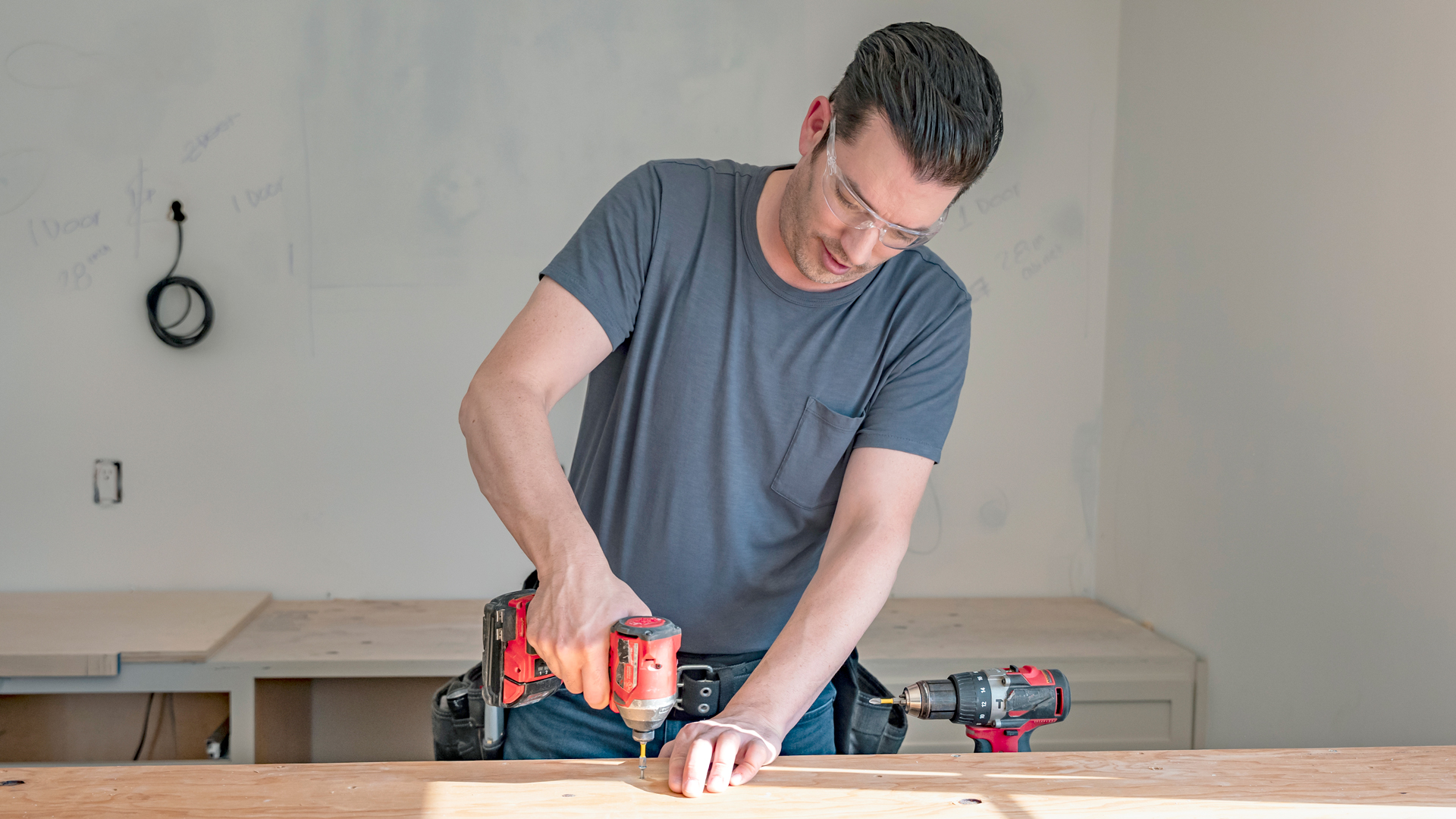
TechRadar: The one smart thing I did with my house when I did my big upgrade, I ran Cat 6 to every room in the house.
Jonathan Scott: Yeah, smart.
TechRadar: And believe me, yeah, we needed the mesh network.
Jonathan Scott: I take it to the next level at my house here. Not only do I have a mesh network everywhere, I also have my own cell repeaters on the property. So, where we are, there is no cell service in and around the properties, but I'm the one place where we have solid cell service here, and it's because I ran my own repeaters.
The biggest problem I have in a lot of newer homes is that there's bad Wi-Fi throughout. People need Wi-Fi today. They want strong Wi-Fi. So, no matter what, I usually say at least when you're running all of your electrical, run your Cat 6 to anywhere where you may want to have a Wi-Fi hub and you will thank yourself later for it.
TechRadar: Then the last question. Do you think that it's fair to say that a smart home is generally going to be a more sustainable home?
Jonathan Scott: Yes, because it's two-factor: One, if you have something like a smart thermostat, it's turning down your demand at times when you don't need it, which is actually saving you money, saving you energy in your home. That's a good thing. But also, these technologies remind us of what our use is.
When you see in an app it says, “Hey, you've got excessive water usage happening here,” and you discover that your friend who's staying in the guest room is taking four-hour showers. These are all things that are also going to save you money.
What I like is a lot of the data from these technologies, it's just reminding us and almost gamifying the fact that we're like, "What can I turn that off. I don't need that running. Why is this still plugged in?"
TechRadar: Right. That makes sense.

A 38-year industry veteran and award-winning journalist, Lance has covered technology since PCs were the size of suitcases and “on line” meant “waiting.” He’s a former Lifewire Editor-in-Chief, Mashable Editor-in-Chief, and, before that, Editor in Chief of PCMag.com and Senior Vice President of Content for Ziff Davis, Inc. He also wrote a popular, weekly tech column for Medium called The Upgrade.
Lance Ulanoff makes frequent appearances on national, international, and local news programs including Live with Kelly and Mark, the Today Show, Good Morning America, CNBC, CNN, and the BBC.